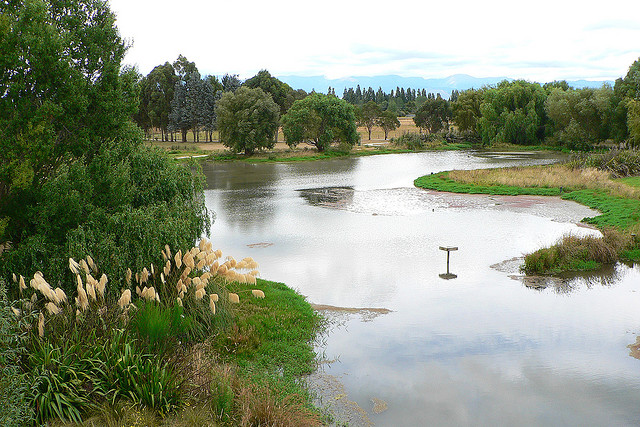The Supreme Court will decide whether or not the Florida government went too far in regulating land development and subsequently violated the Fifth Amendment.
Florida officials demanded Coy Koontz, when seeking a development permit for a parcel of land he purchased in the 1970s, set aside more than two thirds of the land for wetlands conservation and pay for improvements on a separate, state-owned piece of land miles away.
Koontz agreed to set aside 11 of his almost 15 acres of land, but refused to fund the improvements on the state-owned land, which totaled $150,000 and included road construction.
Because Koontz didn’t follow both requirements, his development permit was denied.
Koontz’ case now has landed in the U.S. Supreme Court, and his lawyers are arguing that he’s entitled to compensation because of the permit denial and an “unconstitutional government shakedown.”
Koontz lawyers reference the Fifth Amendment — which requires the government provide “just compensation” for any taking of private property for public use — saying that the “taking” was the requirement that Koontz fund improvements to state-owned land in order to obtain a development permit for his own land. Koontz argues that he missed out on the potential value of the land in the process.
Thailand Property Lawyer
Looking for a real estate lawyer or property lawyer in Thailand? Chaninat and Leeds handles property and land, sale and purchase cases in Thailand.
Supreme Court justices on Tuesday were debating on whether or not the land dispute constitutes “taking,” with Justice Antonin Scalia in opposition, saying the dispute does not seem to violate the Fifth Amendment.
The Supreme Court’s final opinion is due by June. Koontz has since died and the parcel of land has been sold, but his son is continuing with the case.
Fraudulent title deeds are not uncommon on Thai government-owned land, such as in Phuket, Pattaya and other desirable regions. Real estate in these areas is of high value and oftentimes more likely to be involved in scams by unscrupulous merchants. The Pattaya Daily News cites 12 common fraud issues faced by real estate investors, with the most common being title deeds not registered with the Land Department Office and deeds that are not fully transferred to new owners.
Thailand property attorneys Chaninat and Leeds say that a number of land plots purchased by foreigners in locations where there are no proper title deeds, and where the land right is evidenced by a “right to occupy,” may be at risk for seizure by the Thai government.
Related texts: Defrauded in Thailand
Avoiding the Pitfalls in Acquiring Real Estate in Thailand
Flickr photo courtesy of Brenda Anderson


{ 0 comments… add one now }